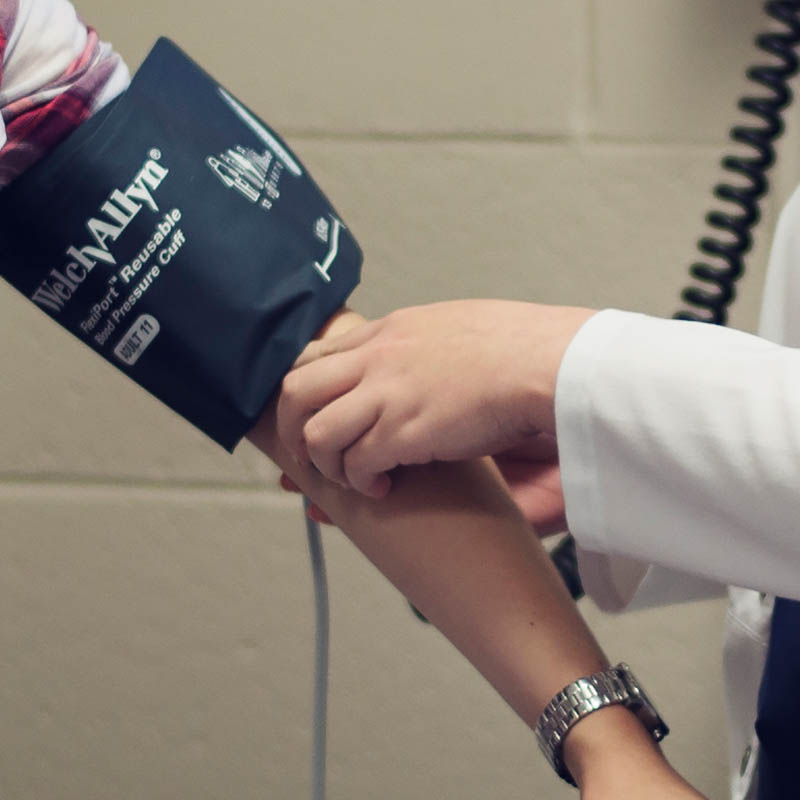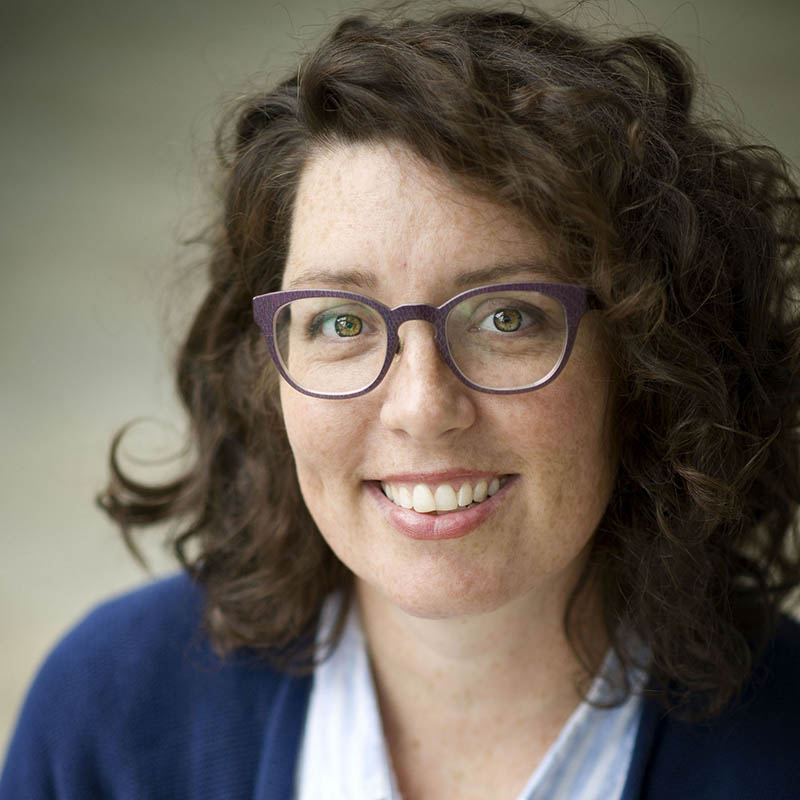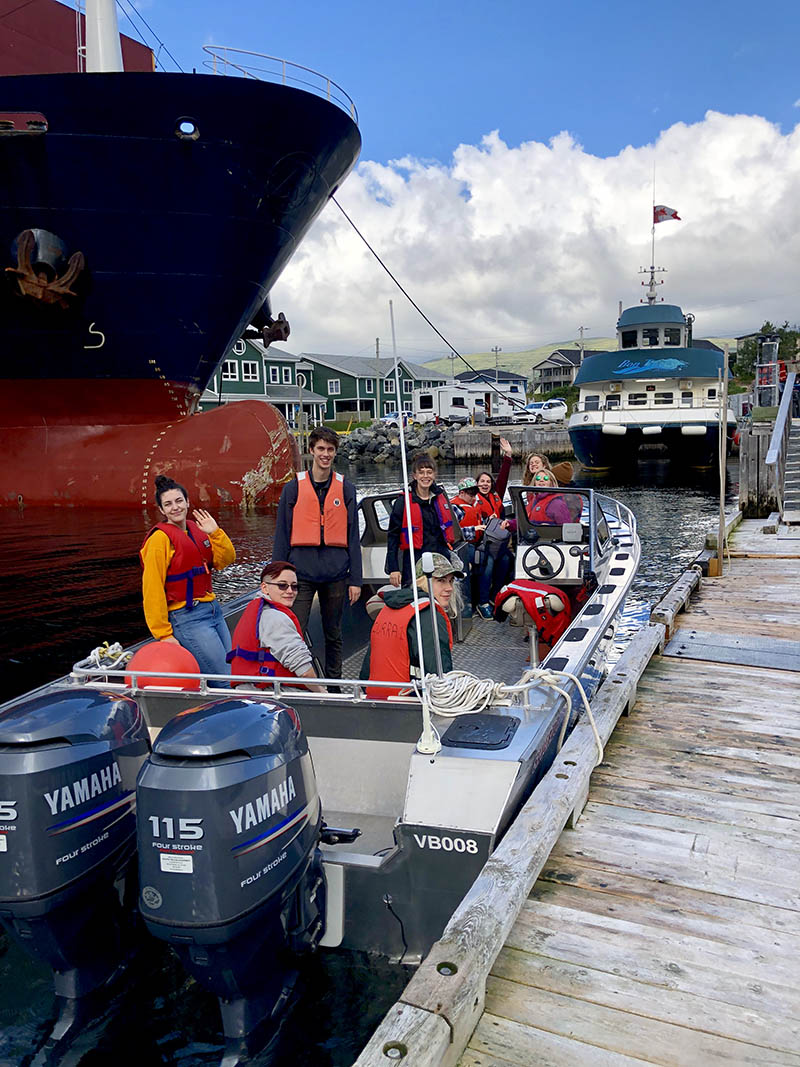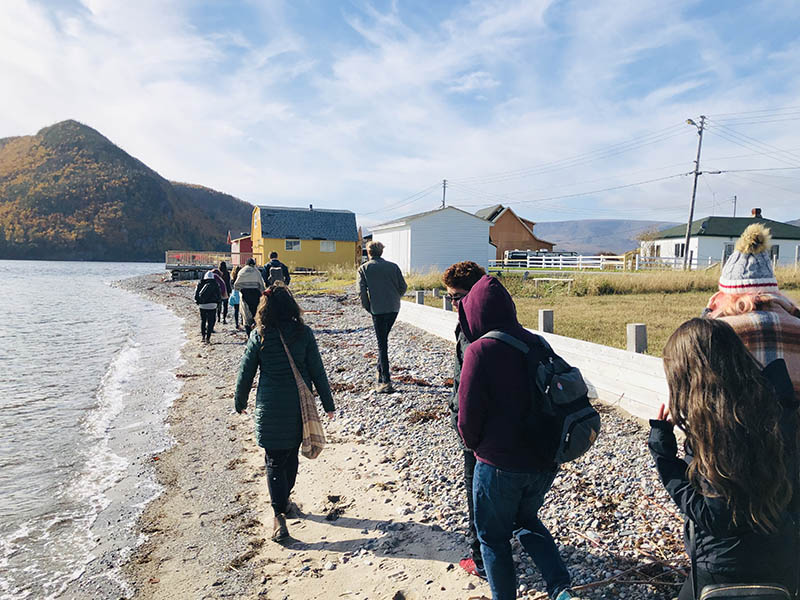Research Report: 2019
▼ Choose a report:

Powered by Research & Graduate Studies

Powered by Arts and Social Science

Powered by Fine Arts

Powered by Science and the Environment


Cameron Forbes
The work of Cameron Forbes, assistant professor in visual arts at Grenfell Campus, has landed her almost $50,000 through an Insight Development Grant.
Titled "Active Site: Interventions and Adaptations in Western Newfoundland's Built Environment," the work considers Western Newfoundland's constructed infrastructure through facilitating creative discourse between visual artists, faculty, students and community members, with the overarching goal of developing a deeper understanding of our place, and our ability to act in a changing social, geographic and economic context.
Her grant, valued at $49,325, will support the realization of three main objectives:

Visual arts students staying at the Bonne Bay Marine Station prepare for a tour of Bonne Bay, as part of VART 3929, Extended Site. Submitted photo
"Corner Brook, along with the fishing-, forestry- and tourism-dependent communities of the Western Newfoundland region, is facing ongoing economic challenges," said Prof. Forbes. "To understand and respond to this social situation, closely tied to natural resources, it is useful to apply the theory of Experimental Geography."
Prof. Forbes explained that "experimental geography" defines a field of creative practice that simultaneously considers landscape, our cultural relationship to landscape, as well as our agency to transform the landscape through an examination of the built environment.

Visual arts students taking VART 3929, Extended Site and MFA students working with Active Site as GAs, join Gros Morne Artist-in-Residence Alicia Hunt for a presentation on the shore of Norris Point. Submitted photo
"Through 'Active Site,' visual artists, faculty, students and community members will examine Western Newfoundland's constructed infrastructure in order to develop a meaningful understanding of our place, and our ability to adapt in our ever-changing socioeconomic and geographic contexts," she said.
Through the grant, two graduate students will be contracted as assistant researchers, participating in all project activities and taking lead roles in documentation. Prof. Forbes, who holds a Bachelor of Fine Arts from NSCAD University (Halifax) and a Master of Fine Arts from Concordia University (Montreal), has exhibited across the country, with recent shows at the McClure Gallery (Montreal), aceartinc. (Winnipeg), and the University of Saskatchewan’s Kenderdine Gallery (Saskatoon). From 2008-2011, She was the executive director of Winnipeg's Art City.
This is just one of many Memorial University projects funded by the Social Sciences and Humanities Research Council of Canada (SSHRC); SSHRC announced a total of $2,273,242 earlier this year for 40 Memorial-led projects.
Insight Development Grants are expected to respond to the objectives of the Insight program. The grants support research in its initial stages, enabling the development of new research questions, as well as experimentation with new methods, theoretical approaches and/or ideas.